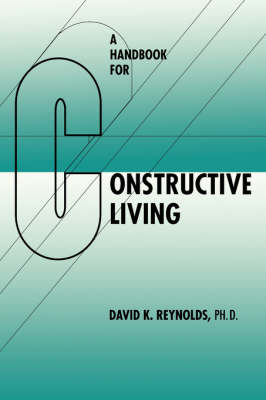Why Diets Dont Work
Diets and slimming clubs will always fail people with sugar addiction because weight loss programs fail to address the effects of sugar on the body, or the disease of addiction and dependency. It’s true that almost all diet clubs instill a sense of failure in those who are unable to achieve or maintain weight loss, they encourage those who sign up to believe that it is their fault. Ill-advised individuals buy into the idea that they have no will power, never once suspecting it is the type of food, not them that is wrong.
In this article we consider four reasons why slimming clubs and weight loss schemes make sugar addiction worse. We take a deep dive into key areas including restriction, malnutrition, the hidden use of addictive food in weight loss meal plans, the prolonged exposure to food cues through recipes and the problem with close inspection of food labels in heavily food cued environments such as supermarkets and grocery shopping online.
Types of Sugar
Whilst the most common type of sugar is the white granulated form, there are over 300 different names for the addictive substance: high fructose corn syrup, fructose, maltose, maple syrup, brown sugar, agave nectar, sucrose, molasses, treacle, corn sweetener, dextrose, caramel, castor, coconut, crystalline fructose, Drimol, Maltodextrin, Ethyl maltol, syrup, honey, cane crystals, malt syrup, lactose, cane sugar, coloured sugar, sucanat, Sorghum syrup, raw sugar, glucose, molasses, palm sugar and many more.
In addition to these refined versions, hidden sugars within flours and carbohydrate products like bread, pastries, cakes, pasta, rice, and starchy vegetables must also be considered. All of which are ultimately converted to glucose during digestion. From here any reference to sugar may relate to any of the above.
Yo-Yo Dieting, Withdrawal and Cravings
How many times have you tried to lose weight only to keep falling on and off the wagon? Do you say: this time it will be different; this time I will be able to keep the weight off; this time I will make good choices and maintain the weight loss, no matter what – only to fall off the wagon, regain all the weight and even put on more? It’s not you or a “sugar habit”, the truth is that consumption of sugary foods activates the mesolimbic reward pathway, resulting in release of dopamine. Over time dopamine release becomes resistant, or desensitised, meaning we must eat more sugar to achieve the same effect.
5 reasons why diets dont work
How meal plans, and weight loss schemes promote sugar intake, creating craving and hunger, malnutrition, and misery.
1. Calorie Counting
The restriction of calories is known to promote obsessive behaviour and intensify sugar cravings for the addict. And since most weight loss meal plans and liquid meal replacement schemes advocate for calorie restriction, sugar cravings are an inevitable consequence of restriction. That’s a science fact!
Diet clubs promote low fat diets but eating low fat creates a nutritional deficit in the body which intensifies the craving for sugar, salt, grains, and the unhealthy fats found in ultra processed food. Low fat diets are not the sugar addicts’ friend and run counter to the natural order of ancestral health by which we have lived our lives for millennia. We need good fat in our dietto flourish.
Most weight loss plans advocate for limiting consumption, or for restriction and lack – for example, extracting the egg white but ditching the egg yolk, eating the chicken but removing the skin. But our bodies need the nutrients provided by the protein-rich egg yolk and the saturated fat of the chicken skin and will crave what we don’t have.
Meal Replacements
Restrictive liquid shakes or meal replacement options are not food. They are more readily named industrially produced edible foodstuffs, but this is not food. When we return to eating food, we are encouraged to re-introduce addictive products (processed food), the taste of which will always re-ignite the disease of sugar addiction.
Surgery Options
For those who undergo bariatric surgery to counter obesity, key stomach cells are removed as well as a significant portion of the stomach. These stomach cells are responsible for the absorption of key nutrients and minerals and will compromise the patient’s ability to function at optimal health. In addition, for these patients, we can notice a transfer of addiction to alcohol or drugs which can be more readily absorbed by the stomach but facilitate a whole host of additional issues.
It’s worth noting how addictions are related, regardless of substance it is an illness, a brain disease and not habit, or emotional behaviour. Addiction replacement is the change from one addictive substance to another. Likewise, research shows the recovering alcoholic will often substitute alcohol for sugary reward foods to counter cravings.
2. Sugar Cravings
Diet clubs provide food plans that focus on addictive food triggers.
So now we know the impact of malnutrition on the sugar addict, here are seven ways commercial weight loss programs trigger addiction by incorporating ultra-processed food (with addictive ingredients) into their meals.
Own brand foods are often included in meal plans. The problem is that these own brand diet products are highly processed food and included additives and ingredients that are highly addictive. This sets up cues and triggers for the sugar addict that mean it is difficult to stop at a single serving. Cravings and perceived hunger can lead to binge eating and poor health.
In addition, the portion size is also restrictive, and restriction has been shown to promote food obsessive thoughts and to intensify cravings for those addicted to sugar.
Many diet clubs offer rewards or “syns” for the dieter or slimmer to eat highly processed snack bars or treats that activate the addiction and intensify craving, meaning that it is very difficult to stop at just one bar.
The processed food products promoted by diet clubs contain artificial sweeteners which have been shown to be chosen in preference by rats over heroin and cocaine. These artificial sweeteners can be highly triggering for the sugar addict and intensify cravings meaning that it is very difficult to stop at one.
3. Eat Less, Move More
There is an idea (conventional wisdom) heavily promoted amongst diet clubs that we can eat this highly addictive processed food and simply exercise it away. This is a pernicious lie and completely fails to acknowledge the impact on a sugar addict consumed by the urge to eat. Over exercising can be a transfer addiction and anyway – have you ever heard the expression walking up an appetite – exercise will inevitably increase appetite, for those dependent on sugar, care is required to manage this additional trigger.
Have you seen the glut of celebrity diet books on the market? They promote the crazy idea that we can eat a single slice of their special chocolate cake recipe with no lasting consequences. How many so-called healthy recipes for cake and desserts with the tag line – Guilt Free? For the sugar dependent, this is not true and guaranteed to trigger overconsumption, binge eating and to intensify cravings and obsessional thoughts – as it is nigh on impossible to stop at a single serve.
If we follow a liquid shake or meal replacement plan, when we re-introduce real food, we are encouraged to eat processed or own brand products containing sugar or additives which will inevitably re-trigger dependency.
4. Appetite Suppression
In this article, we have seen how malnutrition is an inevitable consequence of dietary restriction. Diets don’t work because, weight loss programs and eating plans focus on addictive processed foods which inevitably spike blood sugar. Now let’s consider the problem with the use of drugs and pharmaceuticals to suppress appetite.
There has been a lot of news coverage in recent months on the new miracle weight loss drug Ozempic. But this and similar drugs have a variety of issues and unintended consequences that must not be ignored. For example, side effects to these medications include severe diarrhea, constant nausea, headaches and vomiting and emotional damage in having to experience all these symptoms and maintain a reasonable functioning existence.
Prescribed Alternatives
Constantly exposing the body to pharmaceuticals causes damage to key functions and this in turn will cause stress on the body. Stress and anxiety are universally recognised as a key driver of sugar dependence. In addition, when the drug is stopped, and we return to our previous way of eating, the weight inevitably returns.
The only way to stop this happening is to continue with the drug forever. There are cost implications to this and a question of consequence as no research has yet been done to establish the long-term effects of these new weight loss drugs on our body.
Finally, alternative hormone therapy treatment for weight loss can cause infertility, interruption to normal menstrual cycles, nausea, vomiting, dehydration, and obesity. None of these options curb cravings nor deal with the underlying issue of sugar foods and addiction. They do not serve the sugar addict.
Prolonged Exposure to Food Cues Triggers Cravings
We have reviewed the impact of malnutrition on the sugar addict, considered the failings of weight loss programs and explored the problem with prescription drugs to suppress appetite. Now let’s consider the advice commercial weight loss businesses provide to their subscribers.
5. Food Labelling
Many weight loss clubs encourage their members to read product labels before buying the product. This does not serve the sugar addict who will find themselves in a heavily cued environment – the supermarket, staring at product packaging for longer than is necessary thus triggering and intensifying sugar craving. The best advice is to keep it simple and if a product is cause for debate, don’t even pick up! Get your meats, animal protein and fresh whole foods and “get the Hell outta Dodge City”, keep your blood sugar stable!
Smoke Screens
Many slimming clubs and weight loss schemes offer recipe books to their members. These recipes include delicious pictures of chocolate cake, bread and puddings that the members can eat on plan. Those pictures of food are designed to act as cues to eat and easily trigger the sugar addict to make poor choices.
If we then walk into the kitchen and open a cupboard full of “not my food”, because the super sensitive dopamine reward pathways have already been set up (by the luscious cake pictures), the inevitable consequence is the suppression of any desire to choose healthy foods. That’s a science fact! In this way, the addict is driven to sugar consumption and says “yes” when they really mean “no.”
Why Diets Don’t Work: The Alternative
For over four decades I persisted in the misery of diet clubs in the hope that this time it would be different. Had I not been professionally assessed and received sugar addiction support; I would probably still be there, sitting in the front row, determined this time it would be different, but inside feeling consumed by guilt. The SUGAR® Evaluation report was key to my personal recovery as it helped me understand that my issue was not food per se, rather an addiction to highly processed sugary foods.
Addiction is a chronic physical disease, that manifests in my brain. It is not emotional eating, a decision nor a choice, it’s a disease, which may be directly linked to obesity and diabetes. And in the same way I would wish to be diagnosed for any other chronic physical disease, diagnostic assessment was key to my own recovery.
Treating the Cause
The answer to my obsessions was staring me in the face, but I just could never see it. What I had to do was address the root cause to treat the cause and retrain the brain, to find peace and freedom from obsessional thinking. Slimming clubs and weight loss schemes fail to address the cause of obesity or weight gain in any shape of form and will capitalise on the sugar addict’s relationship with sugar by offering a revolving door business policy based on judgment and failure.
It’s a trap. Heal the brain and the body will follow.
And, in my case, it has. I am maintaining a 70lb (32 kg) weight loss and my disease is currently in remission although, as with any other chronic disease, know the danger of complacency.
Sugar Addiction Help
In this article we have considered four key areas where commercial weight loss clubs make managing sugar addiction impossible for those hooked. These include restriction, malnutrition, the use of sugar in foods, prolonged exposure to food cues through diet recipe books and the problem with slow reading of product labelling in heavily cued supermarket environments.
 Together, we can learn the science, break free from conventional wisdom, and support each other on the long road home.
Together, we can learn the science, break free from conventional wisdom, and support each other on the long road home.
Looking for insightful articles to help you understand why diets often fail and how to address underlying issues like food addiction? Look no further! Our website, SugarsAddictive.com, features a comprehensive Food Addiction Article that explores the reasons behind the ineffectiveness of diets and offers practical strategies for overcoming food addiction.
Remember, recovery is a verb, and we can work it together, one day at a time.
Keep going!





